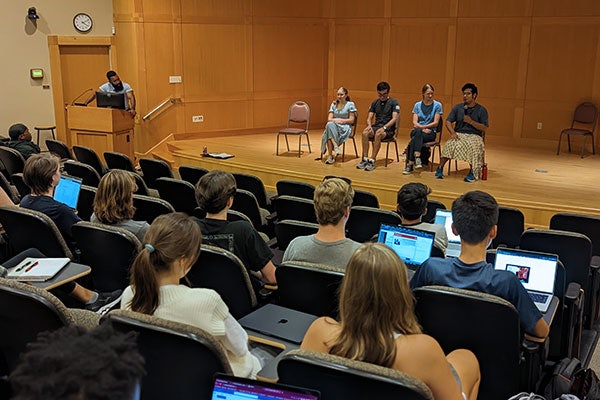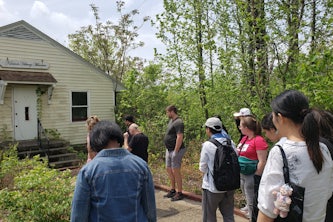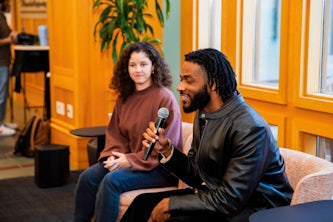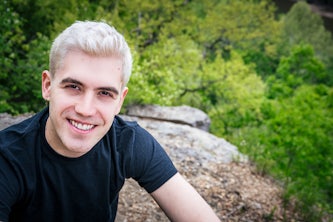Revamped intro course prepares first-year students for life at McKelvey Engineering
The exploratory engineering course teaches students about the different majors at McKelvey Engineering as well as academic strategies for success

Big changes are coming to “First-Year Foundations for McKelvey Engineers,” the introductory engineering course better known as EN 120.
The course returns to the McKelvey School of Engineering this fall after a year-long hiatus during which staff members in the Office of Undergraduate Student Services refreshed the curriculum to better serve students. The biggest change is that four-year advisers will teach the course; previously, McKelvey Engineering juniors and seniors planned and presented the curriculum.
“We reimagined EN 120 to offer an exciting opportunity for first-year students to better connect with us and form a stronger connection with McKelvey Engineering,” said Chris Kroeger, associate dean for Undergraduate Student Services. “EN 120 is a space that will allow advisers to expand new students’ understanding of the possibilities that engineering can offer to both their own lives and to the world at large.”
The first half of the nine-week class will focus on academic and study strategies using the book “Make It Stick,” by Peter C. Brown, Henry L. Roediger III and Mark A. McDaniel. Roediger is the James S. McDonnell Distinguished University Professor of Psychological & Brain Sciences, and McDaniel is the director of the Center for Integrative Research on Cognition, Learning and Education (CIRCLE) in the Department of Psychological & Brain Sciences in Arts & Sciences, both at Washington University.
During the second half of the class, students will discuss the National Academy of Engineering’s Engineering Grand Challenges of the 21st Century, which identifies 14 goals in areas including climate, computing and health care that will improve society.
“That half will be taught as a flipped classroom,” said LaVeasey Carter, assistant dean of undergraduate student services. “The students will do their own research on the challenge topics and bring information back to class to teach to other students.”
While the students will cover the Engineering Grand Challenges and learning strategies from “Make It Stick” during weekly small group sessions, they’ll also attend large weekly events where they’ll hear from McKelvey Engineering alumni, current WashU students and other guest speakers.
“Kelli Delfosse, who is director of industry relations, helped us secure the speakers for each group,” Carter said. “Our goal was to get alumni who are in as many of the different fields we offer as possible.”
While the course is aimed to help students who are undecided about their major, there are benefits for every first-year student in McKelvey Engineering.
“It’s really great for those who are exploring different major options; but, even if students are set on their major, it gives them an opportunity to meet other students and see what’s going on in other departments,” Carter said.



